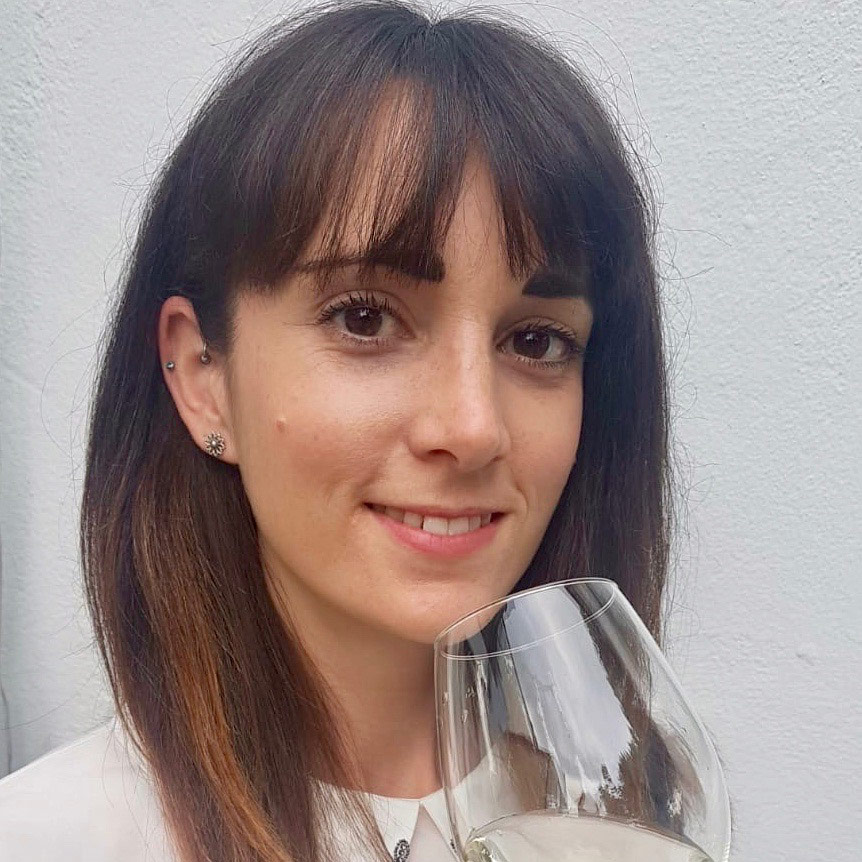International Women’s Day is around the corner, or it is as I write. A life lived largely indoors means it can be hard to hear women’s voices above the chaos of COVID and the realisation that Brexit did finally happen. So with that in mind, I decided that my next piece for GBW should focus on the voices of those I have missed connecting with in the wine industry, the women in wine.
Something many British Wine producers tend to have in common is that winemaking for them is a second career. This is true of Elise Lane. She is the founder of a somewhat unique business, an urban winery called Laneberg in Gateshead, Tyneside. If you were to look back at her early career choices you would think that she had mapped out her journey from the start. Elise holds a Chemistry degree from Oxford University. She initially fell in love with wine after attending a unique tasting that was all about identifying chemical components in wine. Her working life took her in a new direction when she moved to London and worked at a ‘big four’ accountancy firm. She was able to feed her appetite for wine with regular visits to Gordon’s Wine Bar at Embankment whilst studying for her WSET 2 and 3. By this time the English Wine industry was gaining prominence and she realised that she wanted to be a winemaker. However, it took her another five years before she bit the bullet and enrolled on the PGDip in Viticulture and Oenology at Plumpton. Not only did she study there, but she learnt all the practical skills she needed too by becoming the college’s Assistant Winemaker, under Sarah Midgley.
During her time in London, Elise was strongly involved in promoting women’s rights, believing that women shouldn’t be overlooked for promotion because they’d taken a break to have children. I asked her what advice she would pass on to aspiring female winemakers or wine business owners: “I think this is easy to say, but difficult to do: believe in yourself. Owning your own business brings freedom (such as flexibility with when you work), but it also means doing things you’ve never done before or things that you don’t love doing, which can be dispiriting. But if you’re passionate about what you do, try and remember that’s why you’re doing it. I also try to remember that the pressure I feel is often self-imposed pressure because of my expectations for success and my ambition for the business, but no one else is judging me this way. Give yourself a break, and celebrate your successes.”
Jonica Fox of Fox and Fox previously had a marketing career before turning her lifetime hobby of horticulture into growing vines in East Sussex. Her husband, who initially planted the idea in her head, supported her whilst she went to Plumpton and the first rows were laid down in 2004. Since her time in wine production, she says she has noticed more open accessibility to jobs of all kinds in wine – both on the production side and in distribution, sales, marketing and wine commentary/journalism. She notes that “defining people by their biology should be redundant in terms of job roles. I think people are successful if they are talented and work hard but I also think that continuing to make sure that there are equal opportunities is vital for everyone.”
I asked her what advice she would offer other women looking to make a career change into wine production and her response was: “Have faith in yourself, be prepared to roll your sleeves up and do everything, especially in a small business. Being interested, committed and curious is vital – finding solutions to unexpected issues or situations is challenging and rewarding when you get it right. Learn from things that don’t go to plan and don’t waste time regretting things that go astray.”
In contrast, French winemaker at Exton Park, Corinne Seely, knew she wanted to be a winemaker since she was a child. “It all started when I was a little girl on our family holidays in the South of France. Our annual gîte was located in the middle of a vineyard and I used to play in the winery. Everything fascinated me. The smell and the atmosphere were so memorable. It was a truly magical place.” Corinne felt lucky to be surrounded by supportive people during the early days of her career, but still recognised that the industry was even more male-dominated than it is today. “I became one of the first young female winemakers at the head of a Grand Cru Classé in Bordeaux. This was a moment in time that I will never forget. It gave me strength and courage for the rest of my journey.” During Corinne’s time at Exton, she has worked hard to forge a distinct style for the wines, saying that, “even though I am French, I am not here to make a pale copy of Champagne”. Over the past decade, she has been slowly building a library of reserve wines to create a consistent signature Exton style.
Her enthusiasm for her position is clear: “I believe this job to be one of the greatest jobs possible. You create something which starts with the terroir, the product of an ecosystem dating back millions of years. And thanks to the magic of a vineyard and a bit of winemaking, you convert it into a product that makes people cheerful!” Similarly to Jonica, Corinne’s top advice for aspiring winemakers was also, don’t be afraid to roll up your sleeves, as well as to “never feel despondent whatever challenges you face. Be open to learning every day, meeting people, understanding the secret of the terroir and being patient.”
Sam Linter of Bolney Wine Estate had a unique childhood for a young girl in Britain. Her parents established the wine estate in 1972, so she grew up tending to the vines, not knowing the groundwork she was laying for her future. Sam feels fortunate that she had her mother as a role model. As English Wine was in its infancy, she gained advice from various sources including winemakers in New Zealand, Sandy Moss who set up Nyetimber in 1986 and Mike Roberts from Ridgeview. She calls them “pioneers and innovators of their time, who proved everyone wrong when people said wine couldn’t be made in England”.
Sam took over as Managing Director and Head Winemaker in the ‘90s and has made a lot of investments over the years with a new winery and now pivoting the online shop to include drinks from other local brands during the pandemic. She says it has been a long journey: “The ethos I worked to was to learn from mistakes (we made a lot!) and work collaboratively with others in the industry.” Under Sam’s reign, Bolney adopted a customer first approach, which has meant evolving as consumer demands change. She reports that the industry has changed massively during her time: “When I started there were hardly any women working in wine, and at times it’s been very difficult for women to become recognised within the industry. But now we are, and there is a mutual respect for all areas of diversity that maybe wasn’t there before.” She also notes that English Wine has come a long way since she began: “There’s not just a few of us anymore but a lot of us and the world is taking notice.”
Perhaps the most well-known English Wine brand internationally is Nyetimber. I asked Head Winemaker, Cherie Spriggs, if she had anticipated that Nyetimber would become as renowned as it has when she joined 13 years ago: “I knew from the start that Nyetimber had big ambitions and that owner and CEO, Eric Heerema, like myself, was never going to compromise on quality. We share the same passion for excellent wine, and we both wanted to highlight the possibility of making the highest quality Sparkling Wine in the UK. I am, however, very proud, and always pleasantly surprised, at how quickly Nyetimber has grown into such a recognised brand.”
Cherie, who was a biochemist before studying Oenology, attributes a large part of her success to her meticulous attention to detail which ensures consistency of quality in the wines each time it comes to blending, as well as “an unwavering belief that perfection can be achieved in a climate that is unpredictable”. Crucial to the success of a wine brand is having the right winemaker. I asked her if she feels that she is influencing women in their career paths: “Winning the IWC Winemaker of the Year award in 2018 was one of my proudest moments, especially being the first person outside of Champagne, as well as the first woman, ever to win it. It would be lovely to know that other women have been influenced by this win. Women have always been instrumental in the Sparkling Wine industry, whether it was Madame Barbe-Nicole Clicquot, or Louise Pommery. I hope that more and more women recognise winemaking as a fulfilling and substantial career and if I have influenced that in any way, it just makes my job even more satisfying.”
To conclude, I am happy to report that I was spoilt for choice when considering whom to contact for the article, and know there are more women studying wine at Plumpton. It has certainly been exciting to watch the number of women involved in the English Wine industry grow, and to witness their increasing visibility and influence. I look forward to revisiting this article in a few years’ time and expect a lot more women to have become involved in the industry in the meantime.



Pingback: This Week's Latest Wine Headlines: March 7—12 - Briscoe Bites